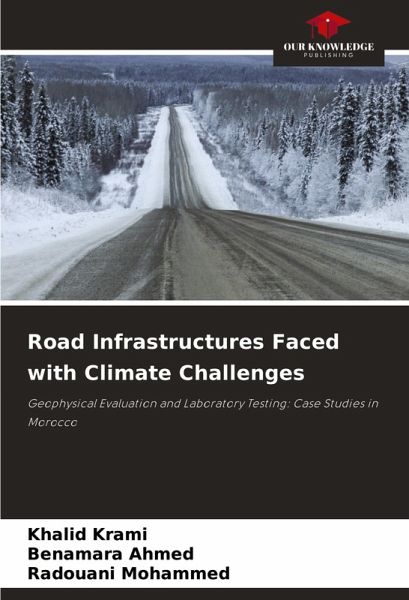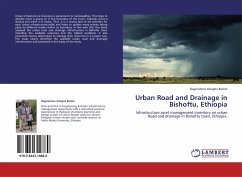
Road Infrastructures Faced with Climate Challenges
Geophysical Evaluation and Laboratory Testing: Case Studies in Morocco
Versandkostenfrei!
Versandfertig in 6-10 Tagen
45,99 €
inkl. MwSt.

PAYBACK Punkte
23 °P sammeln!
Asphalt pavements are subject to a variety of climatic and mechanical stresses that can cause damage, compromising safety and necessitating costly repairs. To better understand these deterioration processes, electrical resistivity tomography was used to assess the resistivity of the supporting soil of four road sections: two on the RR 707 at Ifrane and two on the RN 13 at Azrou and Timhdit, before and during winter. Areas with low resistivity in winter are associated with road damage, suggesting that ERT could be used preventively to anticipate asphalt damage. Tests have also assessed the wate...
Asphalt pavements are subject to a variety of climatic and mechanical stresses that can cause damage, compromising safety and necessitating costly repairs. To better understand these deterioration processes, electrical resistivity tomography was used to assess the resistivity of the supporting soil of four road sections: two on the RR 707 at Ifrane and two on the RN 13 at Azrou and Timhdit, before and during winter. Areas with low resistivity in winter are associated with road damage, suggesting that ERT could be used preventively to anticipate asphalt damage. Tests have also assessed the water sensitivity and fracture resistance of asphalt mixes (SCB) subjected to thermal cycling. Shale-based mixes proved more sensitive than limestone-based ones, but the addition of hydrated lime enhanced the resistance of both types.














